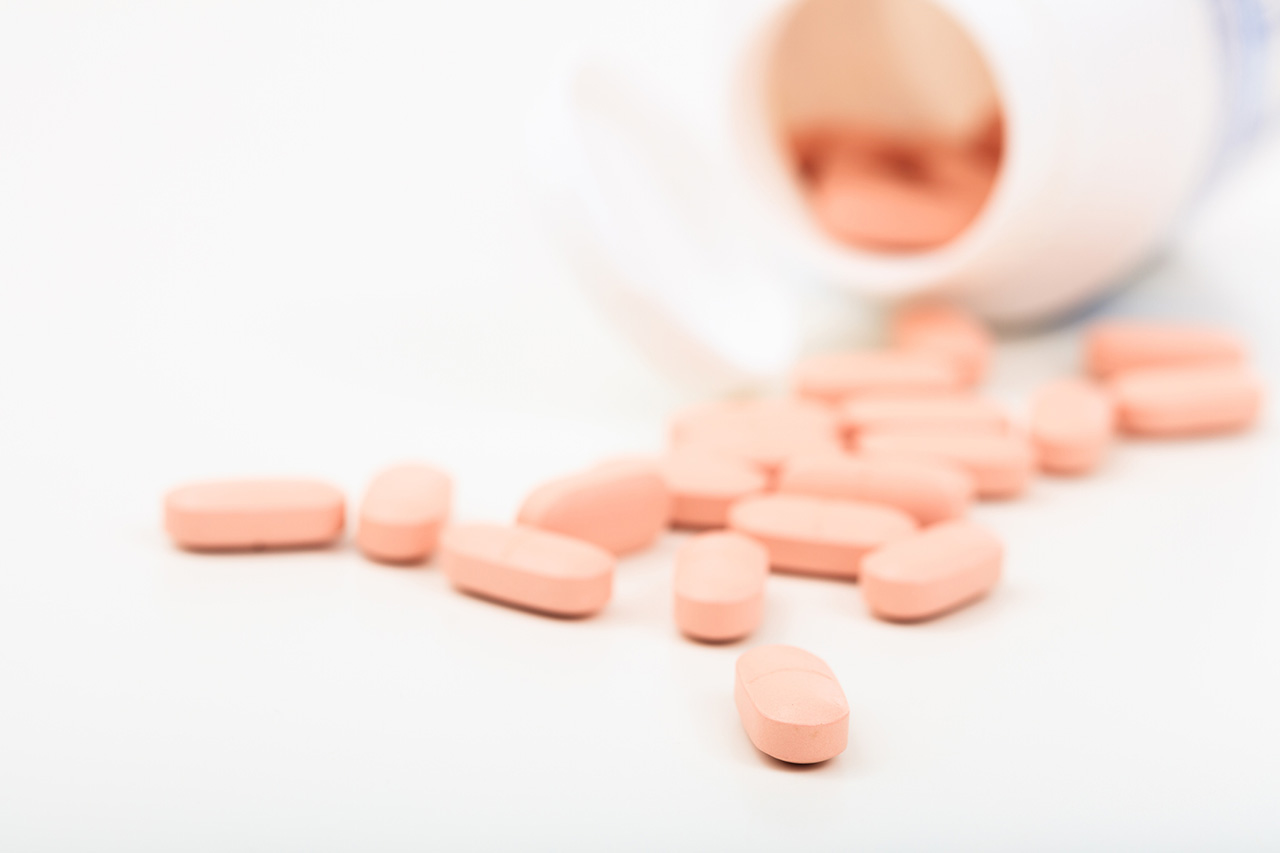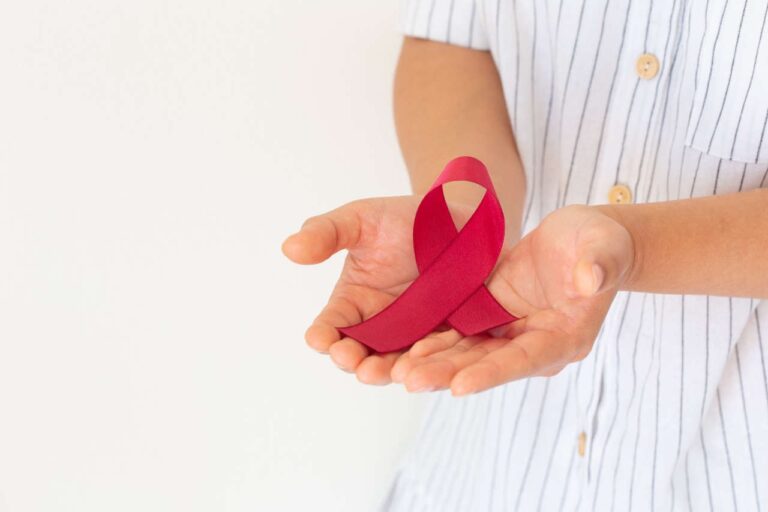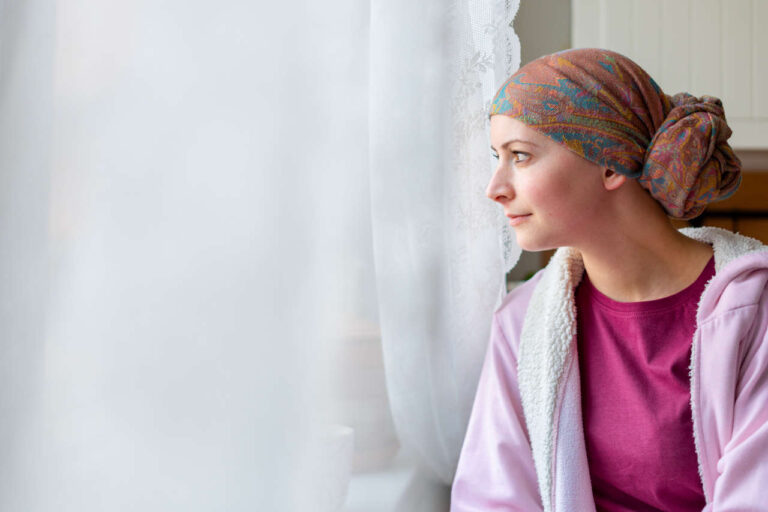
Speak to a Chemo Specialist
Capecitabine ဆိုတာဘာလဲ။
Capecitabine (pronounced [ka pe SITE a been]) is also known by the brand name, Xeloda. Capecitabine is an antineoplastic (anticancer) drug that belongs to a class called antimetabolites (metabolic inhibitor), and it may be prescribed alone or in combination with other anti-cancer drugs.
လုပ်ဆောင်ချက် ယန္တရား
Capecitabine သည် တစ်ခုဖြစ်သည်။ မူးယစ်ဆေးဝါးထို့ကြောင့် capecitabine ဆေးကို မျိုချမိသောအခါ၊ ခန္ဓာကိုယ်သည် ၎င်းကို ၎င်း၏ တက်ကြွသောပုံစံသို့ ပြောင်းလဲပေးသည်။ fluorouracil. Fluorouracil သည် ဆဲလ်များ ကောင်းမွန်စွာ မကြီးထွားအောင် ဟန့်တားခြင်းဖြင့် ကင်ဆာဆဲလ်များကို သေစေသည့် အဆိပ်ဓာတ်ဖြစ်သည်။ Capecitabine သည် ဓာတုကုထုံးတစ်မျိုးဖြစ်သည်။
What Is Chemotherapy?
Chemotherapy is a cancer treatment in which certain drugs are used to kill cancerous cells. These drugs are usually cytotoxic chemical substances that are toxic to the cells, restrict their growth, prevent their division, and ultimately kill the cells.
Protection From Chemotherapy
Capecitabine is considered to be a hazardous agent and normally, these pills are covered by a thin coating of material, but if this coating is damaged, removed, melted or if the pill is broken into pieces, the chemical inside the pill can cause damage to your skin if you touch it. Therefore, it is important to take appropriate precautions for receiving, handling, storing, administering, and disposing of this medication.
Wear gloves if touching this medication, or avoid touching it entirely by using the cap of the bottle to scoop up the tablet and put it directly into the mouth.
Capecitabine ကို ဘယ်လိုအသုံးပြုလဲ။
Capecitabine ကို အတည်ပြုခဲ့သည်။ အစားအသောက်နှင့် ဆေးဝါးကွပ်ကဲရေးဦးစီးဌာန၊ ရင်သား၊ အူမကြီး၊ အူမကြီး၊ ပန်ကရိယ၊ အစာမျိုပြွန်နှင့် အခြားကင်ဆာများကို ကုသရန် ပထမလိုင်းအေးဂျင့်အဖြစ်။ Capecitabine ကို ပြင်းထန်မှုနှင့် ကင်ဆာအမျိုးအစားပေါ် မူတည်၍ အခြားဓာတုကုထုံးအေးဂျင့်များနှင့် ပေါင်းစပ်သတ်မှတ်နိုင်သည်။
Copay ပံ့ပိုးကူညီမှုအကြောင်း ကျွမ်းကျင်သူနှင့် ဆွေးနွေးပါ။
ရရှိနိုင်သော ဖော်မြူလာများ
Capecitabine ကို တက်ဘလက်ပုံစံဖြင့်သာ ရရှိနိုင်ပြီး ပါးစပ်ဖြင့် စီမံခန့်ခွဲရပါမည်။ ဆေးပြားများကို 150 mg နှင့် 500 mg နှစ်မျိုးဖြင့် ရရှိနိုင်သည်။ တက်ဘလက်များသည် ဘဲဥပုံ သို့မဟုတ် ဘဲဥပုံသဏ္ဍာန်၊ ပန်းရောင်ဖျော့ဖျော့ဖြစ်ပြီး တစ်ဖက်တွင် “XELODA” နှင့် အခြားတစ်ဖက်တွင် “150” သို့မဟုတ် “500” (ဆေးပမာဏပေါ်မူတည်၍) ဖြင့် ဖောင်းကြွနေပါသည်။
ဆေးသောက်ခြင်း။
Capecitabine ကို အခြေခံ၍ ဆေးသောက်သည်။ ခန္ဓာကိုယ်မျက်နှာပြင်ဧရိယာ (BSA). BSA သည် အရပ်နှင့် အလေးချိန်ကို အသုံးပြု၍ တွက်ချက်သည်။ ကင်ဆာအမျိုးအစားနှင့် ပြင်းထန်မှုပေါ် မူတည်၍ capecitabine ကို တစ်နေ့ တစ်ကြိမ် သို့မဟုတ် နှစ်ကြိမ် သောက်သုံးနိုင်ပါသည်။ သင့်ဝန်ဆောင်မှုပေးသူနှင့် မှန်ကန်သော ဆေးပမာဏနှင့် အကြိမ်ရေကို စစ်ဆေးပါ။
Duration of Therapy
Capecitabine is usually prescribed for 14 days, followed by 7 treatment-free days, which constitutes one treatment cycle. The treatment cycle may be either 21, 28 or 35 days, depending on the treatment plan. More than one treatment cycle may be given, depending on disease severity.
အသုံးပြုရန်လမ်းညွှန်ချက်များ
အစာစားပြီးနောက် မိနစ် 30 တွင် capecitabine ကို ရေများများသောက်ပါ (အစာစားချိန်နှင့် အလွန်နီးကပ်ပါက ၎င်းကို အပြည့်အဝစုပ်ယူနိုင်မည်မဟုတ်ပါ)။ တက်ဘလက်ကို ယူသောအခါ လုံးလုံးမျိုချပါ။ မညက်တညက်ကြေအောင် ဝါးစားပါ သို့မဟုတ် ပါးစပ်ထဲ ပျော်ဝင်အောင် ခွင့်မပြုပါနှင့်။
လွတ်သွားသောဆေး
အကယ်၍ သင်သည် ဆေးပမာဏကို မတော်တဆ လွတ်သွားပါက၊ နောက်ထပ် တက်ဘလက်များကို မယူပါနှင့်။ လွတ်သွားသောဆေးပမာဏကို ကျော်ပြီး သင်၏နောက်ထပ်သတ်မှတ်ထားသော ဆေးပမာဏကို ဆက်လုပ်ပါ။
သိုလှောင်မှု
ဆေးပြားများကို အခန်းအပူချိန်တွင် အေးပြီး ခြောက်သွေ့သောနေရာတွင် သိမ်းဆည်းပြီး ပုလင်းကို တင်းတင်းကျပ်ကျပ် ပိတ်ထားကြောင်း သေချာပါစေ။
Get Chemotherapy Copay Assistance
Chemotherapy Financial AssistanceWhat To Avoid While Taking Capecitabine
While on the capecitabine therapy, you must follow some precautions. Always tell your physician about any medications you are already taking. Do not take any drug or medicine (even herbals, vitamins, or over-the-counter medications) without prior consent from your physician or pharmacist, as they may cause an allergic reaction when combined with capecitabine.
Minimize sun exposure and use sunblock while outside. Avoid drinking any alcoholic beverages while taking this medication. Avoid any kind of immunization or vaccination without prior consent from your physician.
ကိုယ်ဝန်နှင့် Capecitabine
ကလေးမွေးစအရွယ်အမျိုးသမီးများတွင် ဓာတုကုထုံးမစတင်မီ ကိုယ်ဝန်အခြေအနေကို စစ်ဆေးရပါမည်။ ကလေးမွေးဖွားသည့်အရွယ်အမျိုးသမီးများသည် ကုသမှုကာလအတွင်း ထိရောက်သောသန္ဓေတားဆေးကို ကုသမှုခံယူပြီး နောက်ဆုံးထိုးပြီးနောက် 6 လကြာအောင် အသုံးပြုရပါမည်။
ကိုယ်ဝန်ရနိုင်သော လက်တွဲဖော်အမျိုးသားလူနာများသည် ကုသမှုကာလအတွင်းနှင့် နောက်ဆုံးထိုးပြီးနောက် 3 လအထိ ထိရောက်သောသန္ဓေတားဆေးကို အသုံးပြုသင့်သည်။ Capecitabine သည် သန္ဓေသားကို အန္တရာယ်ဖြစ်စေနိုင်ပြီး နို့တိုက်နေသော အမျိုးသမီးများအတွက် အကြံပြုထားခြင်းမရှိပါ။
Side Effects
As with any other medication, you may encounter many side effects while taking capecitabine. A few things to keep in mind are:
- You may not have all the side effects listed below. Many people may experience little to no side effects.
- The severity of side effects may vary from person to person, so don’t compare your side effects with other people’s experiences.
- Most of the side effects will improve when therapy is discontinued.
- These side effects are easily manageable most of the time either by readjusting the dose of capecitabine or using additional medications to treat the symptoms. Consult with your physician or pharmacist to explore available options.
- Do not hide any symptoms; when you feel any discomfort, do not hesitate to tell your physician or pharmacist about it.
Note: This is not a comprehensive list of all side effects. Talk to your doctor if you have questions.
Some of the most common side effects of capecitabine are:
Hair Loss
One of the most conspicuous side-effects of chemotherapy is hair loss. This happens because most of the chemotherapy pills including capecitabine act on rapidly dividing cancerous cells as well as healthy cells of the body like hair cells. However, the hair usually grows back once the chemotherapy is stopped.
Nausea and Vomiting
You may feel acute or delayed nausea and vomiting once you start chemotherapy. These symptoms usually disappear after a few hours or days after starting therapy. If nausea or vomiting is severe, contact your physician to see if they can add an antiemetic medication to the regimen. Eating habits should consist of small amounts of food four to six times a day. Try to avoid eating too much at once. Maintain proper body hydration and drink fluids throughout the day. This may help reduce nausea or vomiting frequency and severity. Patients 60 years and older may experience a greater incidence of these side effects.
Diarrhea or Abdominal Pain
If you have watery stools more than four times a day or frequent loose, watery stools, you may have diarrhea. This is one of the most common side effects of capecitabine. Abdominal pain may be associated with diarrhea. Stay hydrated and take plenty of fluids to maintain the water balance of your body. Try to avoid eating raw foods, fruits, vegetables, whole-grain bread, cereals, seeds, and any other foods that may exacerbate diarrhea. Foods that will help reduce diarrheal risk include boiled or baked chicken (white meat) and white rice. In rare cases, diarrhea may become severe, and if this happens, consult your doctor immediately. Patients 60 years and older may experience a greater incidence of these side effects.
Consult a Chemotherapy Specialist
Get Chemotherapy Treatment AssistanceSkin Rash
Capecitabine, on rare occasions, may cause a severe skin reaction called Stevens-Johnson syndrome (SJS) or toxic epidermal necrolysis (TEN). This condition can lead to rashes that may appear as red, swollen, hives; itching, blistered, or peeling skin (with or without fever); red or irritated eyes; or sores in the mouth, throat, nose, or eyes. Notify your physician or pharmacist immediately of any signs of a rash or allergic reaction, including wheezing; tightness in the chest or throat; trouble breathing, swallowing, or talking; unusual hoarseness; or swelling of the mouth, face, lips, tongue, or throat.
Eyesight Weakness
Capecitabine may cause eye irritation or watery eyes. This causes excessive tearing (epiphora) where tears may spill out of your eyes even if you are not crying. If symptoms worsen with time or you feel any kind of pain, redness, or itching, immediately consult your physician as this condition may cause eyesight weakness.
Hand-and-Foot Syndrome
Another very conspicuous side effect of capecitabine is hand-and-foot syndrome, also known as palmar-plantar syndrome or palmar-plantar erythrodysesthesia. This syndrome may cause redness, swelling, skin rash, or pain typically on the palms of the hands and the soles of the feet. More severe cases may be characterized by numbness, tingling, swelling, blistering, and peeling skin resulting in fingerprint loss. If you feel any of these symptoms, inform your doctor or pharmacist immediately, as a dose reduction may be required. Patients 60 years and older may experience a greater incidence of this side effect.
Bone Marrow Suppression
It is essential to keep up with regular blood tests, especially the complete blood count test (CBC). The CBC blood test is capable of detecting potential side effects of capecitabine, including leukopenia (low white blood cells level), thrombocytopenia (low platelet count), neutropenia (low white blood cells), and anemia (low red blood cells).
Infection Risk
There may be a high chance of acquiring an infection while on capecitabine therapy. Infections may include fungal, bacterial (such as pneumonia), or viral infections. In order to minimize the risk of infection, it is important to avoid crowds, unhygienic street foods, and certain vaccines. Early symptoms of infection may include cough, chills, fever, flu, or trouble breathing. If you acquire any infection, immediately seek advice from your physician.
Tiredness and Fatigue
Feelings of extreme tiredness and fatigue may occur. This side effect may appear suddenly and sometimes may not go away with rest. Light and regular exercise is recommended, along with adequate sleep. Start with simple activities like walking, then gradually work up to light jogging, slow running, etc. Fatigue may also be associated with anemia, depression, and anxiety. Find ways to relieve anxiety and depression by engaging in positive activities. If fatigue symptoms become unmanageable or severe, inform your physician.
Bone/Joint Pain
Another common side effect includes bone or joint pain, or even back pain. This may also be a result of anemia or other side effects mentioned previously. Adequate rest and hydration may help reduce potential bone, joint, or back pain. Get a doctor’s approval prior to taking any over-the-counter medications such as Advil, Motrin, ibuprofen, and acetaminophen. These medications may interact with capecitabine absorption.
Less common side effects can include:
- ဝမ်းချုပ်ခြင်း။
- ခေါင်းမူးခြင်း။
- ဖျားခြင်း။ ကိုယ်ပူခြင်း
- ခန္ဓာကိုယ်နာကျင်မှု
- အိပ်မပျော်ခြင်း (အိပ်ရန်ခက်ခဲခြင်း)
- ခေါင်းကိုက်ခြင်း။
- ခြောက်သွေ့သောအသားအရေနှင့် လက်သည်းများ ကြွပ်ဆတ်ခြင်း။
- ခံတွင်းအနာနှင့်အနာ
- စိတ်ဓာတ်ကျခြင်း။
Get Chemotherapy Copay Assistance
Chemotherapy Financial Assistanceကြိုတင်သတိပေးချက်များ
Unless approved by your physician, capecitabine is generally not recommended for:
- Patients who have an allergy to capecitabine, fluorouracil, or any component of the formulation.
- Patients with severe kidney impairment.
အမေးအဖြေများ
Is capecitabine a chemo agent?
Chemo drugs are those that are used in the management of various cancers. Capecitabine converts into its active form, fluorouracil, inside the body in order to kill cancer cells. Therefore, it is a chemo agent that is recommended as a treatment option for various cancer patients.
Can you lose your hair with capecitabine?
Like other chemotherapeutic agents, capecitabine has the potential to cause hair loss. When used alone, it may not cause complete hair loss. However, complete hair loss may occur when capecitabine is taken in combination with other chemotherapy drugs.
Can capecitabine remove fingerprints?
Yes, however, the loss may be temporary or permanent depending on the person, maintenance, and duration of therapy.
Can you touch capecitabine?
Chemo drugs contain chemicals that are hazardous to health, and therefore you should avoid touching them. Wear gloves or pour the drug directly into the mouth using the cap of the drug bottle to avoid or minimize direct contact.
အကိုးအကားများ-
Capecitabine. In: Lexi-drugs online [database on the Internet]. Hudson (OH): Lexicomp, Inc.; 2016 [updated 2 Nov 2021; cited 4 Nov 2021]. Available from: http://online.lexi.com
Capecitabine. In: In Depth Answers [database on the Internet]. Greenwood Village (CO): IBM Corporation; 2017 [cited 2021 Nov 4]. Available from: www.micromedexsolutions.com.
Dooley, M., & Goa, K. L. (1999). Capecitabine. Drugs, 58(1), 69-76.
Genentech: Xeloda® (CAPECITABINE) – information for patients. Genentech: Xeloda® (capecitabine) – Information for Patients. (n.d.). Retrieved November 4, 2021, from https://www.gene.com/patients/medicines/xeloda.
Koukourakis, G. V., Kouloulias, V., Koukourakis, M. J., Zacharias, G. A., Zabatis, H., & Kouvaris, J. (2008). Efficacy of the oral fluorouracil pro-drug capecitabine in cancer treatment: a review. Molecules, 13(8), 1897-1922.
Saif, M. W., Katirtzoglou, N. A., & Syrigos, K. N. (2008). Capecitabine: an overview of the side effects and their management. Anti-cancer drugs, 19(5), 447-464.
Stathopoulos, G. P., Koutantos, J., Lazaki, H., Rigatos, S. K., Stathopoulos, J., & Deliconstantinos, G. (2007). Capecitabine (Xeloda) as monotherapy in advanced breast and colorectal cancer: effectiveness and side-effects. Anticancer research, 27(3B), 1653-1656.
Van Essen, M., Krenning, E. P., Kam, B. L., de Herder, W. W., van Aken, M. O., & Kwekkeboom, D. J. (2008). Report on short-term side effects of treatments with 177 Lu-octreotate in combination with capecitabine in seven patients with gastroenteropancreatic neuroendocrine tumours. European journal of nuclear medicine and molecular imaging, 35(4), 743-748.
Van Essen, M., Krenning, E. P., Kam, B. L., de Herder, W. W., van Aken, M. O., & Kwekkeboom, D. J. (2008). Report on short-term side effects of treatments with 177 Lu-octreotate in combination with capecitabine in seven patients with gastroenteropancreatic neuroendocrine tumours. European journal of nuclear medicine and molecular imaging, 35(4), 743-748.Walko, C. M., & Lindley, C. (2005). Capecitabine: a review. Clinical therapeutics, 27(1), 23-44.
Xeloda: Uses, dosage, side effects, warnings. Drugs.com. (n.d.). Retrieved November 4, 2021, from https://www.drugs.com/xeloda.html.













